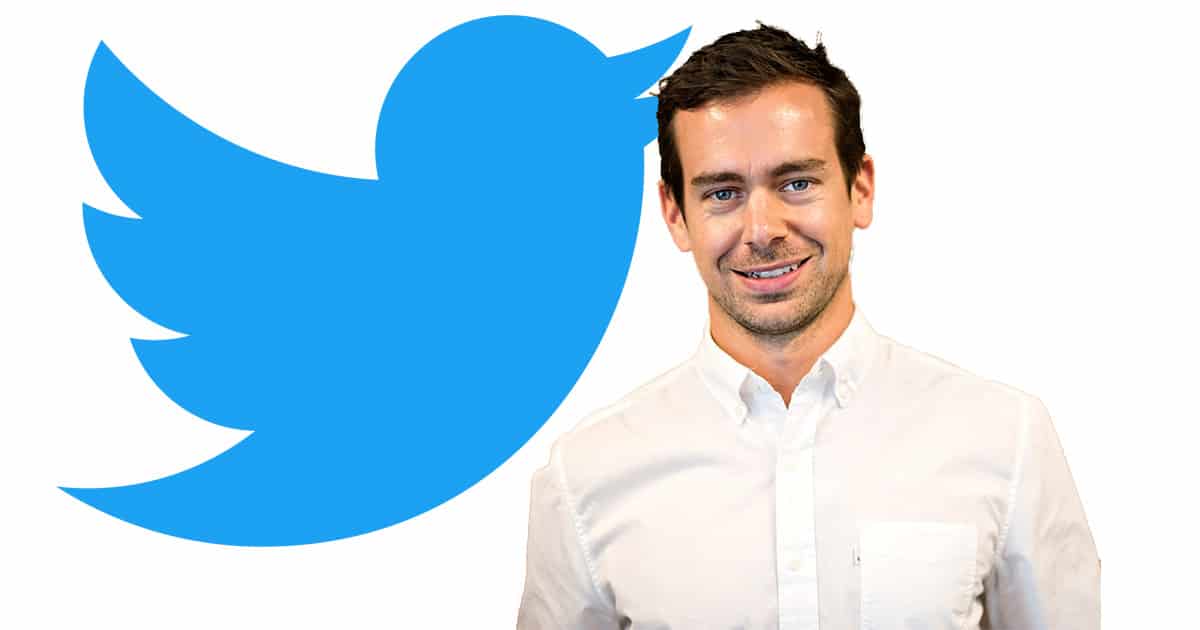Today Facebook announced the launch of its consumer payment system. No, it’s not the cryptocurrency ‘Libra.’ Instead it’s Facebook Pay.
Is Facebook Secretly Accessing Your Camera? This Man Found a Bug
For years there have been anecdotes from people saying that Facebook secretly uses their phone’s microphone and/or camera for targeted advertising. Joshua Maddux tweeted about a bug he found within the Facebook app. By tapping on a profile picture and slowly sliding it down the screen, you can see his rear camera being accessed on the left hand side. He tested it using five iPhones running iOS 13.2.2.
Found a
@facebook#security &#privacy issue. When the app is open it actively uses the camera. I found a bug in the app that lets you see the camera open behind your feed. Note that I had the camera pointed at the carpet.
Jack Dorsey Stops Trolling Facebook And Praises Latest Instagram Experiment
Jack Dorsey has rather gleefully mocked Facebook recently, but was right behind it the company’s experiment of not showing Instagram ‘Likes’.
Only 44% of People Correctly Spotted Fake News on Facebook
In a small study (n=80) undergraduate students were fitted with a wireless electroencephalography (EEG) headset. They were then asked to read political news headlines as they would appear on a Facebook feed to determine their credibility. They overwhelmingly chose headlines that aligned with their political beliefs as true.
“We all believe that we are better than the average person at detecting fake news, but that’s simply not possible,” said lead author Patricia Moravec, assistant professor of information, risk and operations management. “The environment of social media and our own biases make us all much worse than we think.”
Leaked Internal Facebook Documents Reveal Disturbing Information
Today a trove of 4,000 internal Facebook documents reveal how the social media giant profits off user data and battles rivals.
Here are some of the key revelations from the document dump, including from reports published from earlier leaks:
Facebook wielded its control over user data to hobble rivals like YouTube, Twitter, and Amazon.
Facebook executives quietly planned a data-policy “switcharoo.”
Facebook considered charging companies to access user data.
Facebook whitelisted certain companies to allow them more extensive access to user data, even after it locked down its developer platform throughout 2014 and 2015.
Facebook planned to spy on the locations of Android users.
The PDF can be found here but currently it’s taking forever to load. Grab it while it’s hot.
Facebook Says 100 App Developers Improperly Accessed Data From Groups
In another case of Facebook letting app developers access whatever data they want, 100 of them improperly accessed data from Groups despite Facebook claiming it restricted that access.
Today we are also reaching out to roughly 100 partners who may have accessed this information since we announced restrictions to the Groups API, although it’s likely that the number that actually did is smaller and decreased over time.
100 app developers you say? Why would 100,000 app developers do such a thing?
Social Media, Hands On with AirPods Pro, Apple Content Bundles, with John Kheit - ACM 524
John Kheit joins Bryan Chaffin to discuss social media, mob rule, and the 1st Amendment. Yikes! They also talk about their hands-on experience with AirPods Pro and look at Apple’s content pricing and whether or not the company is likely to offer more bundles for its content (spoiler: no!).
Like an Addict Facebook is Chasing Even More of Our Data, Now With Facial Scans
Researcher Jane Manchun Wong found that Facebook is working on facial scans called “facial recognition-based identity verification.” It would ask users to upload a selfie of them looking in different directions before they can access their account.
On that same screen and later in the actual video selfie process, Facebook notes that “no one else will see” the video selfie you submit to them and says the video will be “deleted 30 days after your identity is confirmed.”
Deleted after 30 days. Based on Facebook’s past actions we can safely assume it will do the exact opposite. There’s not much room for giving them the benefit of the doubt.
Facebook Profits on Manipulating Us, an Insider Reveals
Writing for The Washington Post, Yaël Eisenstat writes about paid political advertising at Facebook and how the company profits off of manipulation.
The “culture of fear,” nasty political campaigns and amplified extreme voices are not new in American society. But the scale to which these platforms have fueled and exacerbated this by using our emotional biases to keep our eyeballs on their screens, to vacuum up our data and sell their targeting tools to advertisers, has tilted the playing field toward the most salacious and fanatical voices.
Facebook Employees Write to Mark Zuckerberg Over Political Ads
Hundreds of Facebook employees signed a letter to Mark Zuckerberg, raising concerns over the company’s policy towards political adverts.
Arguing That Platforms Can't Moderate Content is a Cop Out
Mike Masnick writes about Elizabeth Warren’s Facebook feud over its advertising policy that leaves room for fake information. He also says it’s “impossible” to moderate content at scale. I disagree. Facebook and the rest of Big Tech have billions of dollars. They absolutely can moderate content. They either choose not to, or put in place petty measures that don’t do anything. Perhaps the new motto for corporations should be, “If you can’t do it ethically, don’t do it at all.” Online platforms should follow the same/similar rules that broadcasters do.
And this is the point that lots of us have been trying to make regarding Facebook and content moderation. If you’re screaming about all the wrong choices you think it makes to leave stuff up, recognize that you’re also going to pretty pissed off when the company also decides to take stuff down that you think should be left up.
CNN to Challenge Apple News+ With Digital News Service
CNN is set to launch a digital news curation service to challenge Apple News+, which is currently known internally as NewsCo.
Facebook Claims it can Protect Elections But Lets Politicians Lie
Facebook announced new features today that it claims can stop 2020 election interference. However, its advertising policy lets politicians lie and gladly pockets the money it gets from allowing it.
One new feature is called Facebook Protect. By hijacking accounts of political candidates or their campaign staff, bad actors can steal sensitive information, expose secrets, and spread disinformation. So to safeguard these vulnerable users, Facebook is launching a new program with extra security they can opt into.
Mark Zuckerberg on letting politicians lie in Facebook ads: “I don’t think people want to live in a world where you can only say things that tech companies decide are 100 percent true. And I think that those tensions are something we have to live with.”
Private Social Network MeWe Reaches 6 Million Members
Private social network MeWe has reached six million members in 2019 and was named the Best Entrepreneurial Company for this year.
MeWe expects over 100 million members by the end of 2020, having achieved 405% growth in 2018 and growing twice as fast on a daily basis in 2019. 60% of MeWe’s traffic is international and 35% of members are active—exceeding industry standards.
I’ll be honest, I haven’t used MeWe since I reviewed it. But I’ll gladly promote alternatives to Facebook, especially if privacy is the number one focus.
Tim Cook's Cryptocurrency Comments – TMO Daily Observations 2019-10-04
Andrew Orr and Bryan Chaffin join host Kelly Guimont to discuss Tim Cook’s comments about Libra and the IMF’s statement on cryptocurrency.
Tim Cook Criticizes Facebook's Libra Currency
Tim Cook spoke with French newspaper Les Echos where he said that currencies should stay in the hands of governments, not private companies.
IMF Calls on Policymakers to Address Digital Currencies
Economists at the International Monetary Fund (IMF) are calling on policymakers around the world to address the “notable risks” of privately-issued digital currencies, otherwise known as stablecoins. Facebook’s Libra is one such example. Should central banks issue their own digital currencies?
The two economists suggest that stablecoins could undermine financial stability, and that stablecoin users risk losing their money: “Whether stablecoins are indeed stable is questionable.” It depends on the safety and availability of the underlying assets, and whether they are “protected from other creditors if the stablecoin provider goes bankrupt.”
One of the worries is that technology companies don’t have the same consumer protection rules as banks do. I look forward to seeing how this will play out. I certainly trust banks more than I do Facebook.
Facebook to Only Pay Some Outlets Featured in its News Tab
Facebook will reportedly only pay around a quarter of news outlets featured on its forthcoming News tab for use of their content.
Facebook Refuses to Fact-Check Politicians
Facebook moves to hold politicians to lower standards than the rest of us, saying that politicians will be exempt from its fact-checking system.
Facebook uses independent third-party fact-checking organizations to help identity fake news, misleading claims and misinformation. However, it said posts made by politicians would not be fact-checked. It said it did not want to be the “referee” in political debates or prevent politicians’ posts from reaching their intended audience. However, it did not define who it counted as a politician.
Mark Zuckerberg won’t fact-check politicians but he’ll gladly take their political advertising money.
Facebook Abuses Collected in Snap's 'Project Voldemort'
Snap, the parent company of Snapchat, reportedly has a dossier of anticompetitive behavior Facebook carried out over the years, dubbed Project Voldemort.
According to the WSJ, Snap’s legal team recorded instances where Facebook discouraged prominent social media influencers with a presence on multiple platforms from mentioning Snap on their Instagram accounts. Snap executives also suspected Facebook was suppressing content that originated on Snap from trending on Instagram, when such content was shared there.
Smart TVs Send Your Private Data to Facebook, Netflix
Researchers conducted a study that found many smart TVs are sending your private data to Facebook and Netflix.
Facebook Launches New Surveillance Devices For Your Home
Today Facebook launched Portal video chatting devices that definitely won’t be used to spy on you and your loved ones. They will let Facebook users watch television together over a video call. Andrew Bosworth, VP of AR/VR at Facebook, said:
I think that in a couple years’ time, if you have a smart streaming device that doesn’t have a camera allowing you to video call people, you’re not going to have a competitive product. I think this is the killer feature for a device like this.
Bosworth also touted privacy protections like local processing of smart features on the devices, which means most user data will not be sent back to Facebook servers.
HAHAHAHAHAHAHAHA.
iOS 13 Forced Facebook to Admit it Collects Your Location Data
Yes, I know how shocked you are folks. As it turns out, Facebook lied about yet another thing: It totally collects your location data, and admitted that fact itself in a blog post.
For years the antisocial media giant has claimed it doesn’t track your location, insisting to suspicious reporters and privacy advocates that its addicts “have full control over their data,” and that it does not gather or sell that data unless those users agree to it.
Then, late on Monday, Facebook emitted a blog post in which it kindly offered to help users “understand updates” to their “device’s location settings.”
You may have missed the critical part amid the glowing testimony so we’ll repeat it: “… use precise location even when you’re not using the app…”
Quote from a TMO reader: “Hoping that FB will somehow become secure is as much magical thinking as expecting a wild pig to perform the role Juliet for Bolshoi.”
Facebook's Fake News Loophole
Although Facebook has pledged to fight fake news and other misinformation on its platform, there’s a loophole.














